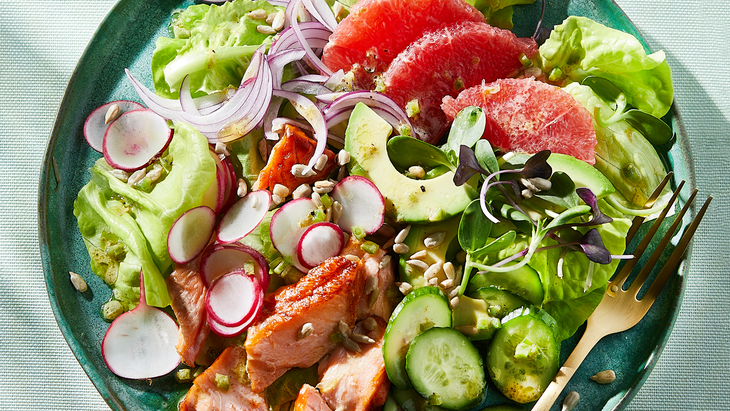How To Take Your Running to the Next Level, Without Running
“], “filter”: { “nextExceptions”: “img, blockquote, div”, “nextContainsExceptions”: “img, blockquote”} }”>
Get access to everything we publish when you >”,”name”:”in-content-cta”,”type”:”link”}}”>login to Outside+.
By Kimberly Clark
It’s so easy to believe that you can only get better at running by running, but sometimes that can be further from the truth.
I know during the time of my life accumulating miles and miles and miles (80 mile weeks and now I’m wondering – how did I even have time for my job?!) – I focused on just running to get better. And what do you know? I got worse and worse as the season progressed. But like the frog you put in the pot of warm water you bring to a boil, you don’t quite realize it until it’s way too late when you’re in the midst of regression.
As runners trying to get faster, we think that if we just focus on running more and harder, we’ll get faster. But sometimes more work is not the answer.
Follow Kimberly Clark on Instagram
5 things runners should focus on besides running
Here are the other things you also need to focus on if you want to see a breakthrough in your performance:

1. Sleep
It cannot be stressed enough. Next to running, sleep is the most important thing to improve fitness and improve your performance. Before I ran my PR marathon, I slept 8-9 hours a night straight. Your body recovers the most and rebuilds itself during sleep. So, more sleep allows you to train harder, more consistently, and create a smoother path to your best fitness ever!
If you’re running out of sleep on a training cycle and it feels like your body isn’t catching up, don’t feel bad about skipping a run and sleeping in. Sometimes this can be the most productive training decision you make.
There’s a reason pro runners schedule naps into their days and call them “business meetings” — they know the secret to recovery is good, restful sleep and that there’s no substitute for real sleep. You cannot take supplements that replace the need for sleep.
Running is a holistic endeavor. It requires a balance of body, mind and spirit. And it’s important to take care of your body so you can see how things add up for your running. When you focus on putting your body first, you will see the great progress you are working for!

2. Workout Nutrition
I used to live by the motto, “If the stove is hot enough, it will burn everything.” That may be true, but it still takes good fuel. I realized that just because the kiln is burning it now doesn’t mean it will continue to burn as hot as just being fed garbage. The better I watched my diet, the better I fueled, the better equipped my body was to perform, recover, sleep, work and just generally function.
Eat a balanced diet with protein, carbohydrates, vitamins and minerals. And above all, eat enough. I find that I can’t overeat in the middle of the season when training really picks up steam and especially in the marathon training phase. During the bulking phases, your body burns a lot of calories for exercise and recovery, and you have a lot of calories to replenish. In the high season, your body is more at risk of underfueling than overfuelling. Do not train or race with 1/4 tank of fuel. You need to be fueled up, fueled up and ready to go.

3. Form drill
Running more efficiently means being able to run faster and maintain any given pace with less effort. Form exercises don’t take long before or after a run (or whenever you have a few minutes to get outside). I promise if you focus on form it will start to improve and running will feel more effortless and smooth – which becomes even more motivation for continued form work!
Teach your muscles to produce fast, powerful movements by exaggerating parts of the running stride with drills like high knees and butt kickers.
Get more bounce in your step and develop an efficient foot strike with tapping and hopping exercises.

4. Lateral pull
The repetitive stress that running puts on your body limits your ability to run without risking injury. Most runners benefit more from adding a cross training session than adding another run to their weekly schedule. Also, cross-training has some specific benefits that an extra run would not have.
Cycling is one of the most popular forms of cross training for runners, and for good reason. Low-resistance cycling encourages a small and quick movement that helps develop a faster cadence and more efficient stride length. Higher resistance cycling builds strength in the legs and hips. AND cycling at any resistance increases aerobic capacity!
Elliptical trainer is another great form of cross training that creates resistance in a movement very similar to running and works all the same muscles.
Swimming is least like running, but that’s not so bad. It doesn’t carry any weight, so it’s great for a full body workout and aerobic fitness, while also sparing your muscles to recover between runs. The water also has a compressive effect, which is especially good for relaxation!
RELATED: Runner Mary Cain wants you to start swimming + swim workouts

5. Strength training
You don’t have to be a bodybuilder. A little strength training can go a long way. Stronger muscles create a more powerful stride, allowing you to effortlessly cover more ground with each stride. And if you’re late in a race and your muscles feel heavy, you’ll be used to resisting hard with those muscles and have the strength to keep up your pace.
If you’ve never done strength training before (or at least not for running), start with bodyweight exercises and work your way up to light weights. Make sure to focus on major muscles like calves, quadriceps, hamstrings, and hip flexors and extensors, as well as smaller muscles that help with stabilization like hip abductors and adductors, abs, and lower back.
Plus, strength training doesn’t have to be so overwhelming that it takes time. It can literally be 2-3 times a week for 20-30 minutes. I feel like it’s a lot easier to get into when the time commitment sounds manageable and sustainable. Can you find 2 to 20 minute slots in your week to explode your running?!
Also – if you’re pressed for time, just skip a run or shave a few miles off a run and replace it with strength training. I promise you, strength training is worth its weight in gold.
RELATED: How strength training helped runner Sally McCrae turn pro